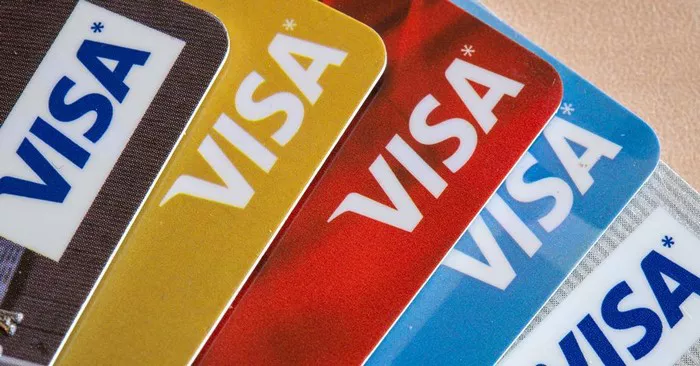In an increasingly globalized world, businesses often find themselves seeking talent beyond their borders. Whether it’s to fill skill gaps or bring in specialized expertise, sponsoring a work visa for foreign employees has become a common practice. However, the process comes with its own set of expenses, which can vary significantly depending on several factors. In this article, we delve into the intricacies of sponsoring a work visa, exploring the costs involved and providing insights to help businesses make informed decisions.
Understanding the Basics of Work Visa Sponsorship
Before delving into the costs, it’s crucial to grasp the fundamentals of work visa sponsorship. Essentially, sponsoring a work visa involves a company or employer petitioning on behalf of a foreign national to legally work in their country. This process typically entails demonstrating that the position cannot be filled by local talent and that hiring the foreign worker will not adversely affect the job market.
Each country has its own visa categories, eligibility criteria, and procedures for sponsorship. For instance, in the United States, employers often sponsor foreign workers through the H-1B visa program for specialized occupations, while in the United Kingdom, the Tier 2 (General) visa is commonly used for skilled workers. The intricacies of these programs can significantly impact the overall cost of sponsorship.
Breakdown of Sponsorship Costs
Sponsoring a work visa entails various expenses, which can be broadly categorized as follows:
1. Government Fees: Most countries impose government fees for processing visa applications and petitions. These fees can vary based on factors such as the visa category, processing time, and whether expedited services are required. For instance, in the United States, as of 2022, the base filing fee for an H-1B petition is $460, with additional charges for premium processing.
2. Attorney Fees: Navigating the complexities of immigration law often requires legal expertise. Many companies opt to hire immigration attorneys to assist with the visa sponsorship process. Attorney fees can vary based on the attorney’s experience, the complexity of the case, and the services provided. Some attorneys charge a flat fee, while others may bill by the hour.
3. Advertising and Recruitment Costs: In many countries, employers are required to demonstrate that they have made efforts to recruit locally before sponsoring a foreign worker. This may involve advertising the job vacancy, conducting interviews, and documenting the recruitment process. These advertising and recruitment expenses can add up, particularly if the position is highly specialized or difficult to fill.
4. Relocation Expenses: Once the visa is approved, the employer may also bear the costs associated with relocating the foreign worker, such as travel expenses, temporary accommodation, and shipping of household goods. These expenses can vary depending on the distance of the relocation and the standard of living in the new location.
5. Compliance Costs: Employers are often required to comply with certain obligations throughout the duration of the foreign worker’s employment, such as maintaining accurate records, ensuring compliance with visa conditions, and adhering to reporting requirements. Failure to comply with these obligations can result in penalties and fines, adding to the overall cost of sponsorship.
Factors Influencing Costs
Several factors can influence the total cost of sponsoring a work visa:
1. Visa Category: Different visa categories have different requirements and associated costs. For example, visas for specialized occupations may have higher government fees compared to visas for intracompany transfers.
2. Processing Time: Some countries offer expedited processing for an additional fee. Opting for expedited processing can significantly increase the overall cost but may be necessary if there are urgent staffing needs.
3. Geographic Location: The cost of living and business operating expenses can vary widely depending on the location of the sponsoring company. This can impact recruitment and relocation expenses.
4. Employer’s Compliance History: Companies with a history of non-compliance with immigration laws may incur additional costs for audits, fines, or legal fees.
5. Employee’s Qualifications: The qualifications and experience of the foreign worker can also influence costs. Highly skilled individuals may command higher salaries, increasing overall expenses.
Mitigating Costs and Maximizing ROI
While sponsoring a work visa can be a significant financial commitment, businesses can take steps to mitigate costs and maximize return on investment:
1. Plan Ahead: Start the visa sponsorship process well in advance to allow sufficient time for application preparation and processing. Early planning can help avoid rush fees and expedited processing charges.
2. Streamline Recruitment: Use targeted recruitment strategies to minimize advertising and recruitment expenses. Leverage professional networks, job boards, and recruitment agencies to identify suitable candidates efficiently.
3. Negotiate Salary and Benefits: Negotiate salary and benefits packages with the foreign worker to ensure they are competitive while still aligning with the company’s budgetary constraints.
4. Stay Compliant: Invest in robust compliance measures to avoid costly penalties and fines. Regularly review immigration policies and procedures to ensure ongoing compliance with relevant regulations.
5. Explore Alternatives: Consider alternative visa options or immigration pathways that may be more cost-effective or better suited to the company’s needs. For example, some countries offer fast-track or streamlined visa programs for certain industries or types of employment.
Conclusion
Sponsoring a work visa involves a myriad of costs, ranging from government fees and legal expenses to relocation and compliance costs. By understanding the factors that influence these expenses and implementing strategic measures to mitigate costs, businesses can navigate the visa sponsorship process more effectively. While the financial investment may be significant, the ability to access global talent can yield substantial long-term benefits, driving innovation, growth, and competitiveness in an increasingly interconnected world.


